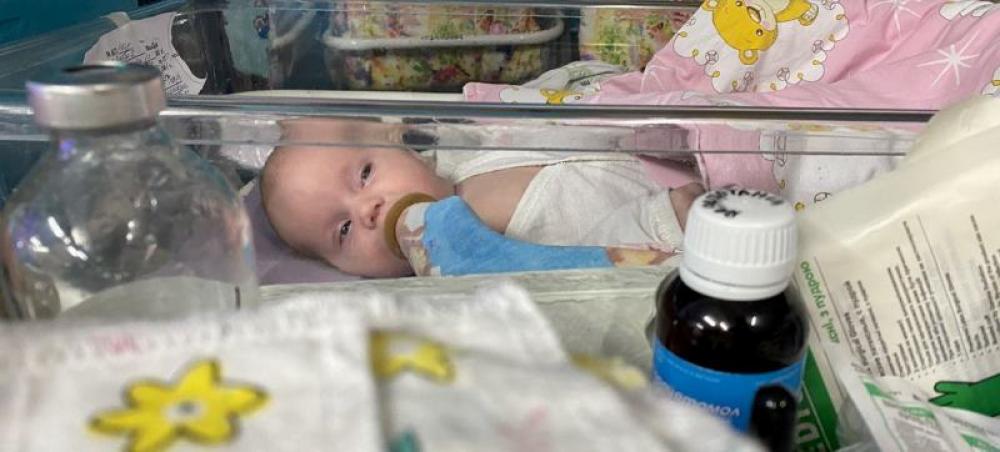Just Earth News | @justearthnews | 03 Mar 2022

Image: UNICEF/Oleksandr Brynza
New York: On day seven of the Ukraine crisis, UN-led efforts to ramp up support to the country’s embattled health workers have continued, with the first shipment of lifesaving supplies due to arrive in neighbouring Poland in the coming hours.
Initial concerns about a lack of medicines to treat chronic conditions such as diabetes, gave way on Wednesday to an alert from the World Health Organization (WHO) that “people will die” if they do not get oxygen and other supplies for urgent emergency care.
Heart-wrenching scenes
“Some of us have been in this game a long time and we’ve developed very thick skins, but when you see nurses mechanically ventilating infants in basements of hospitals, even the toughest of us, we struggle to watch that,” said Dr Mike Ryan, head of WHO’s Emergencies Programme. "And those heroes that are there, (they’re) mainly women in those basements who are taking care of those kids.”
At a press conference in Geneva, head of the WHO, Tedros Adhanom Ghebreyesus, said that 36 tonnes of materials for trauma care and emergency surgery were on their way from a WHO hub in Dubai - enough to meet the needs of 1,000 patients.
Additional health supplies will also be available for another 150,000 people, the WHO Director-General added, and the UN agency is also hoping to deliver oxygen from neighbouring countries to where it’s needed.
Out of reach
Prior to the conflict, the UN health agency distributed emergency supplies to 23 hospitals in Ukraine, but Tedros cautioned that prepositioned materials in Kyiv were “currently inaccessible”.
At least three major oxygen plants in Ukraine have now closed, Tedros added.
“There is an urgent need to establish a corridor to ensure humanitarian workers and supplies have safe and continuous access to reach people in need,” insisted the WHO chief, who also expressed serious concern at “several” unconfirmed attacks on hospitals and health infrastructure, since the Russian offensive began last Thursday.
“Attacks on healthcare are in violation of international humanitarian law,” he said, before underscoring the “sanctity and neutrality” of health care, health workers, patients, supplies, transport and facilities. “The right to safe access to care, must be respected and protected,” he said.
Echoing concerns for Ukraine’s most vulnerable civilians who have been exposed to shelling and bombing, Dr Ryan noted that “if you’re a 65 or 70-year-old in ICU, no-one can carry you down the stairs to the basement…and they’re being cared for by doctors and nurses while the bombs are falling around them.”
He added: “People’s bodies and people’s bones have been broken and people’s lives are being lost and there isn’t a health service available to deliver lifesaving care, and we can’t supply that health service at the moment. So something has got to move and something has got to change to create the conditions in which that can happen.”
COVID surge
As the exodus of Ukrainians continues away from the conflict, Tedros explained that conditions were ideal for increased COVID-19 transmission both within Ukraine and beyond its borders.
Key priorities to prevent the spread of the coronavirus include ensuring that vaccinations are maintained where possible, and that COVID therapeutics and antivirals are made available, Dr. Ryan said.